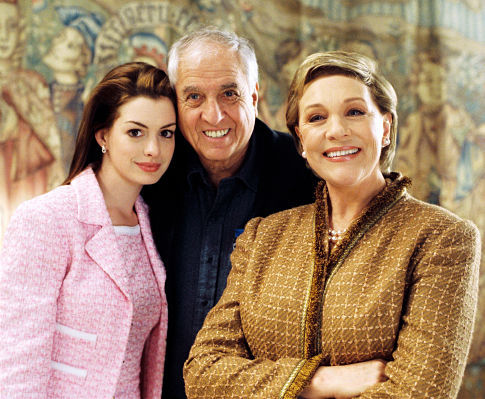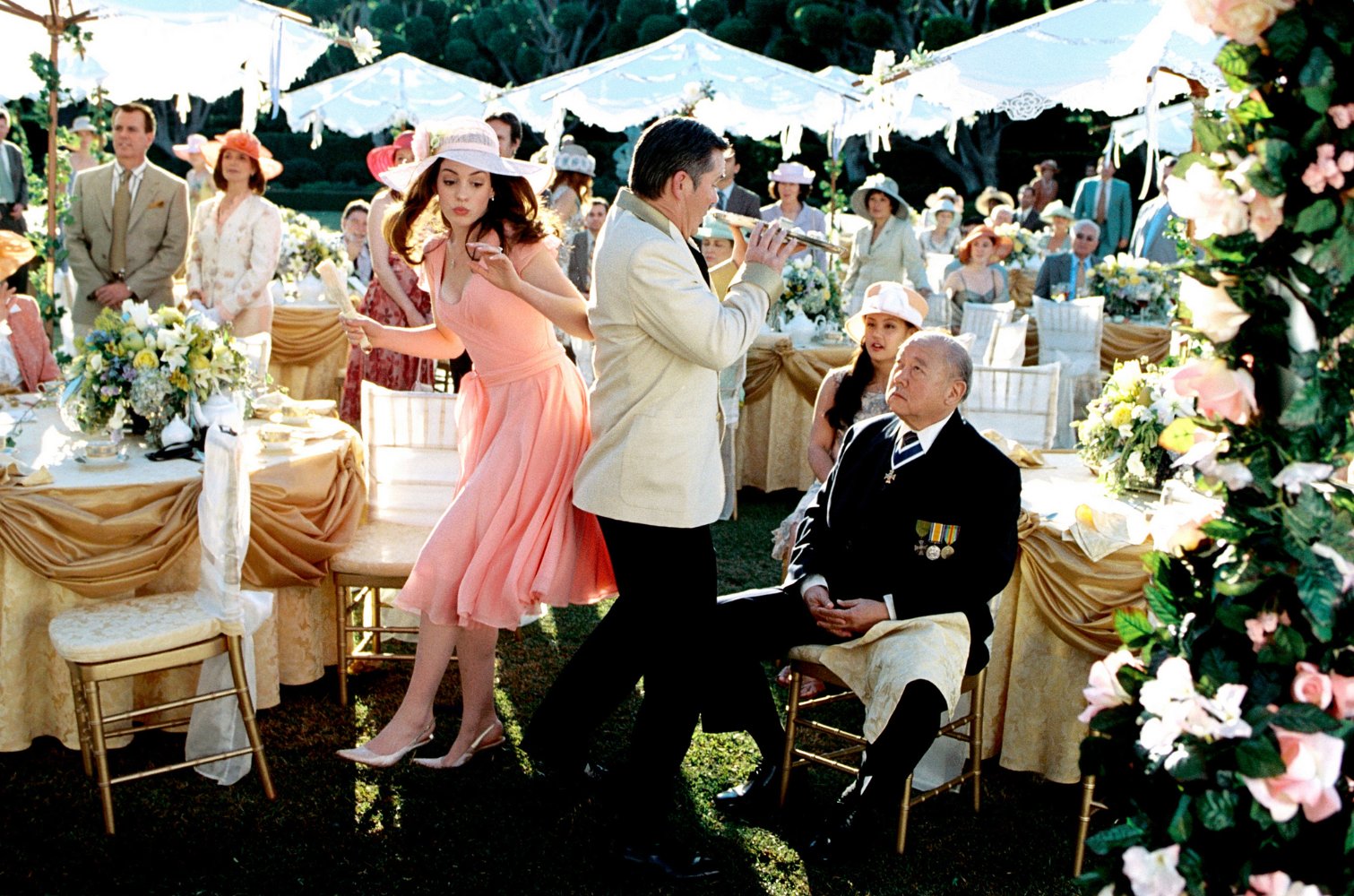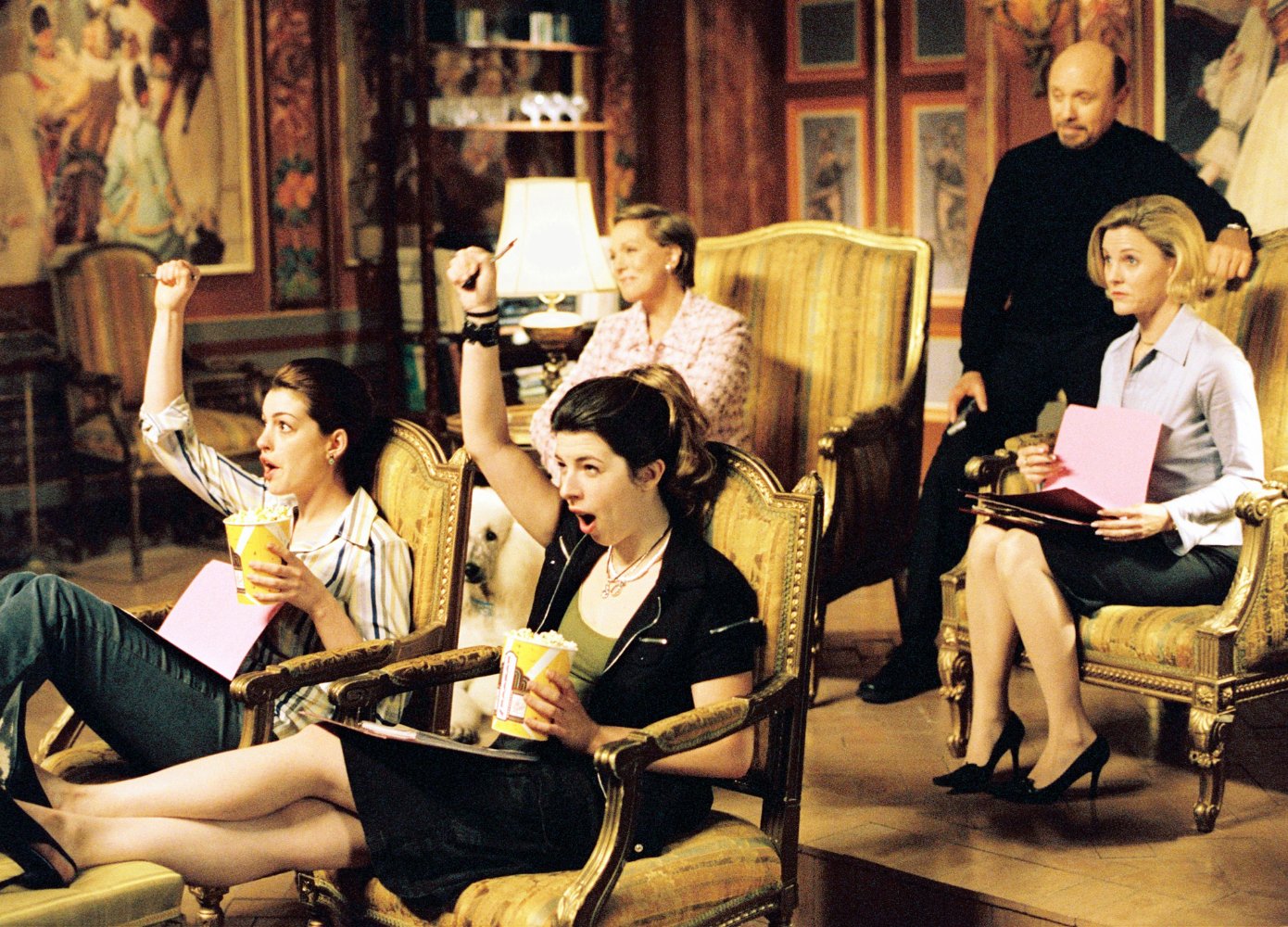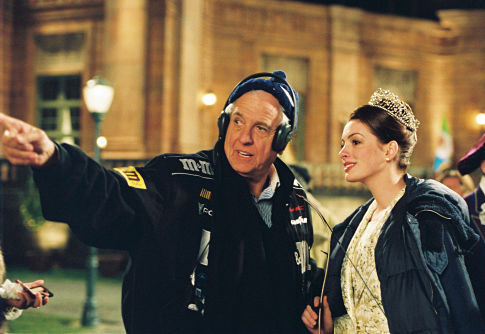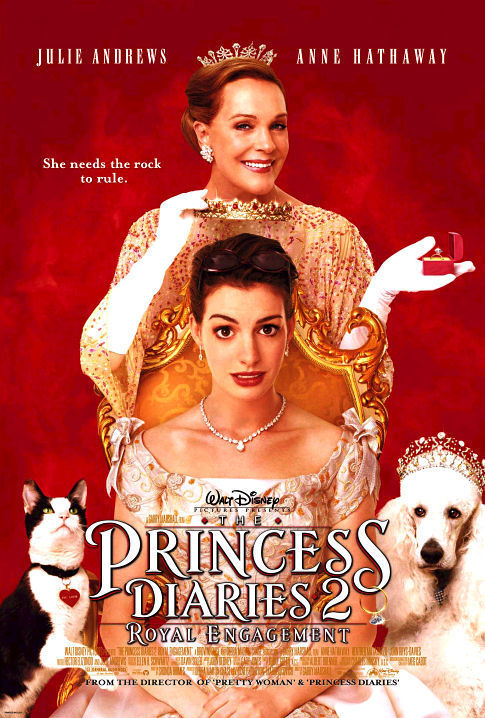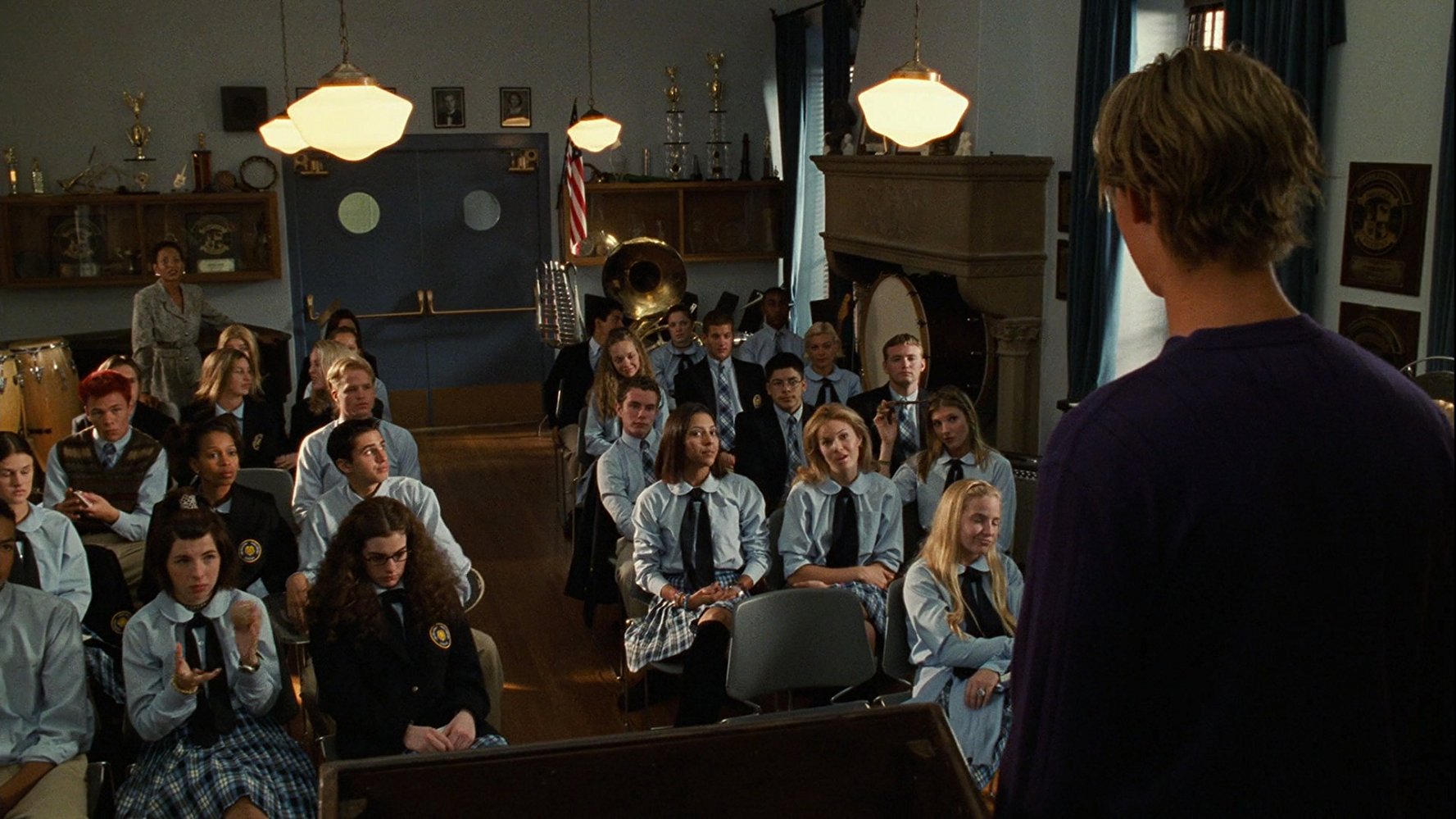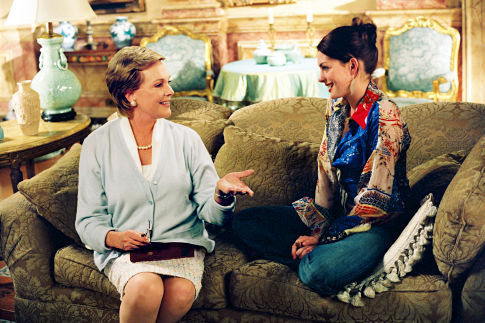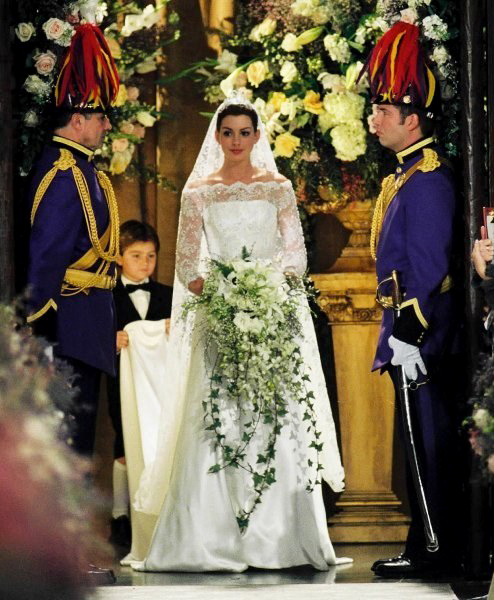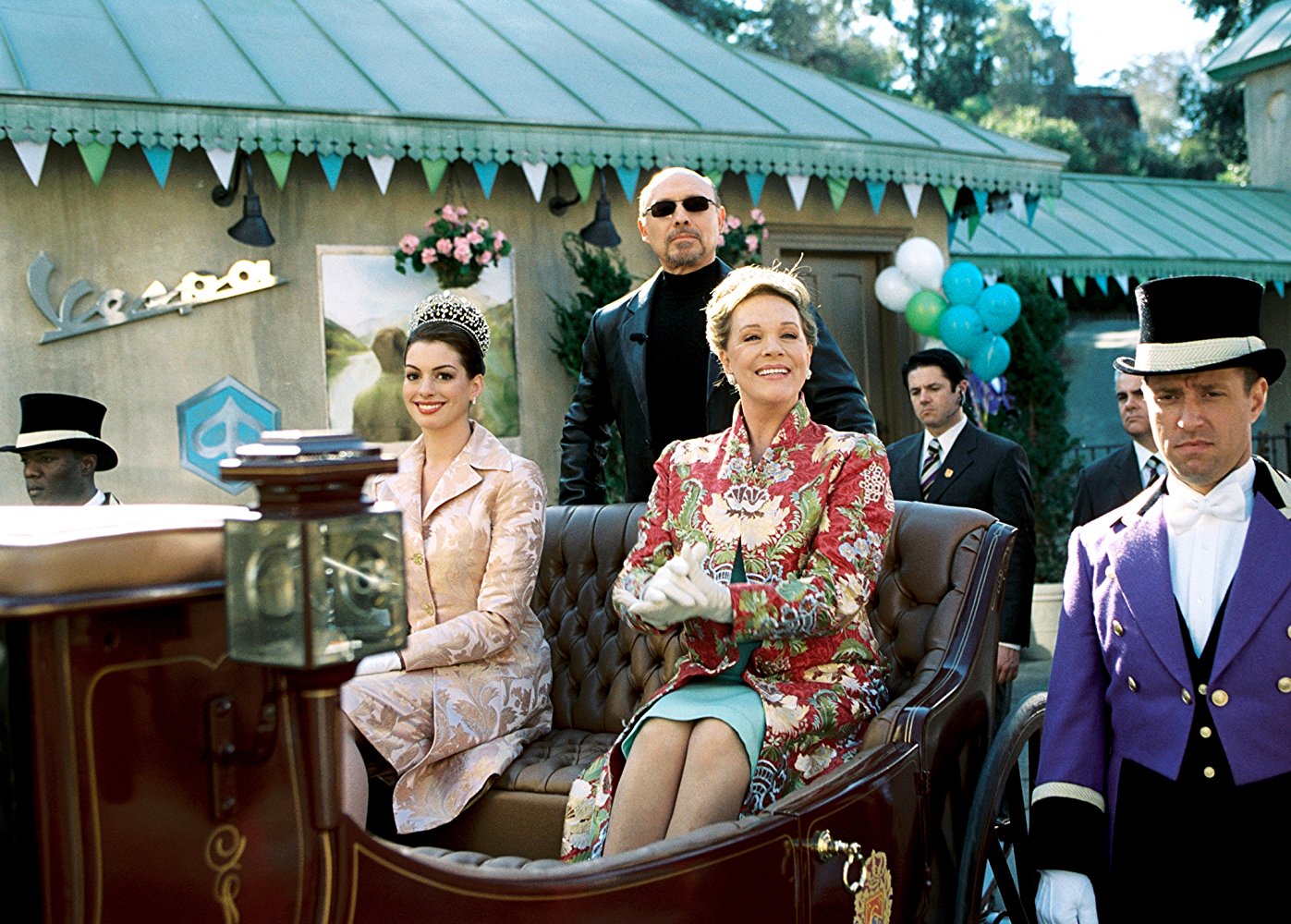AMELIA MIGNONETTE THERMOPOLIS RENALDI, QUEEN OF GENOVIA (1983-r. 2004-present) (Anne Hathaway), in The Princess Diaries series, began her reign with a reform she had to fight for in one day.According to the law then in force, no unmarried woman could succeed as a reigning Queen. But on the day she was to marry to retain her eligibility, she and her...
Show more »
AMELIA MIGNONETTE THERMOPOLIS RENALDI, QUEEN OF GENOVIA (1983-r. 2004-present) (Anne Hathaway), in The Princess Diaries series, began her reign with a reform she had to fight for in one day.According to the law then in force, no unmarried woman could succeed as a reigning Queen. But on the day she was to marry to retain her eligibility, she and her intended both decided they would not marry by arrangement. So she made a powerful clarion call to the assembled guests, including the entire membership of Parliament, that they ought to repeal that law and allow her to accede to the throne without a husband. The Prime Minister so moved, and one other Member seconded the motion. The Viscount Mabray vehemently objected--and then his nephew, Sir Nicholas Devereaux, Baronet, made an impassioned speech in support of Amelia's accession. Parliament voted unanimously to repeal the law and recognize Amelia as Queen. She took her crown a week later. And in the year that followed she introduced many more political reforms in rapid-fire order. They included granting women the right to vote and to hold any office of honor, trust or profit, including Membership in Parliament.Ironically, she did take a husband on the anniversary of her reign. Sir Nicholas Devereaux, Baronet, became His Royal Highness the Prince Consort on that day. The Queen and the Baronet had formed their attachment earlier, but agreed that he should court her for a decent interval, and allow her one year to prove she could reign without benefit of a husband. And to put through her reform program.She was born Mia Thermopolis in 1983. Her father, son of King Rupert and Queen Clarisse, had run away from his principate and married a Greek-American woman. Mia never had a clue to her royal lineage until she was sixteen years old and a senior in an American high school.The change in her fortunes happened after her father had died, and her grandmother, the reigning Queen of Genovia, had not wanted the crown to pass away from her to House Devereaux (Viscounts Mabray). So Mia (the name actually is the Greek feminine word for the number one, as well as a short form of Amelia) suddenly received a summons to the Genovian Consulate in her city. There she met Queen Clarisse. And so began a whirlwind of makeover, including instruction in protocol and Genovian history.She almost didn't go along with it--mainly because her friend Michael Moskowitz set up an embarrassing moment at a beach party. (The Royal Master-at-arms later determined he was merely looking for his fifteen minutes of fame. ) But in the end she accepted her royal role--and forgave Michael, even to allowing him the honor of her first dance after her recognition and investiture.She finished her secondary education with a year of private tutelage in the palace in the capital city. But she insisted on going to a real university. Queen Clarisse agreed and sent her to Princeton University, where she studied political science. But she despaired: even a degree in political science could not substitute for a course of instruction on how to be a head of state! (If we knew the subject of her senior thesis, that all Princeton students must write to graduate, that might give a clue. But the narratives say nothing about that.)She returned to the palace upon her graduation, and shortly thereafter gained her majority--her twenty-first birthday. She chose to explore the palace further--and discovered the secret passageway from the Queen's private chapel to the meeting hall of Parliament. Where she listened in, and got the shock of her life: the law of succession forbade an unmarried princess to accede to the throne! More than that, she learned who the young swain, Nicholas Devereaux, who had flirted with her on her return, was: none other than Sir Nicholas Devereaux, Baronet, nephew of the Viscount Mabray. That schemer had tried to wrest the crown from House Renaldi five years earlier, and here he was using that ridiculous law!Parliament gave her thirty days to find a husband. She, the Queen, and Protocol Chief Charlotte Kutaway settled on a harmless sort of man--a man, however, who lacked drive and only went along with it because his own family insisted upon it. In spite of herself, she had strong feelings for young Nicholas--and he seemed to reciprocate.We shall never know how that adventure might have ended, had not Sir Nicholas decided, at the last minute, not to oppose Mia's accession. He simply loved her enough to allow her her birthright. But, as mentioned, she could not marry young Arthur if she and Arthur did not even love one another. So instead she made that stirring speech that, some say, shamed the Parliament into repealing that medieval law against an unmarried queen.Now in the eleventh year of her reign, Queen Mia enjoys the unreserved affection of all her people. She also received further support for her chief reform from an unlikely quarter: the Parliament of the United Kingdom of Great Britain and Northern Ireland amended their own succession law to provide that royal succession would always pass through the eldest child, male or female. Perhaps the British House of Commons drew inspiration from Queen Mia when they chose to amend their own laws--though the British, with their characteristic reserve, have never confirmed nor denied this.
Show less «


